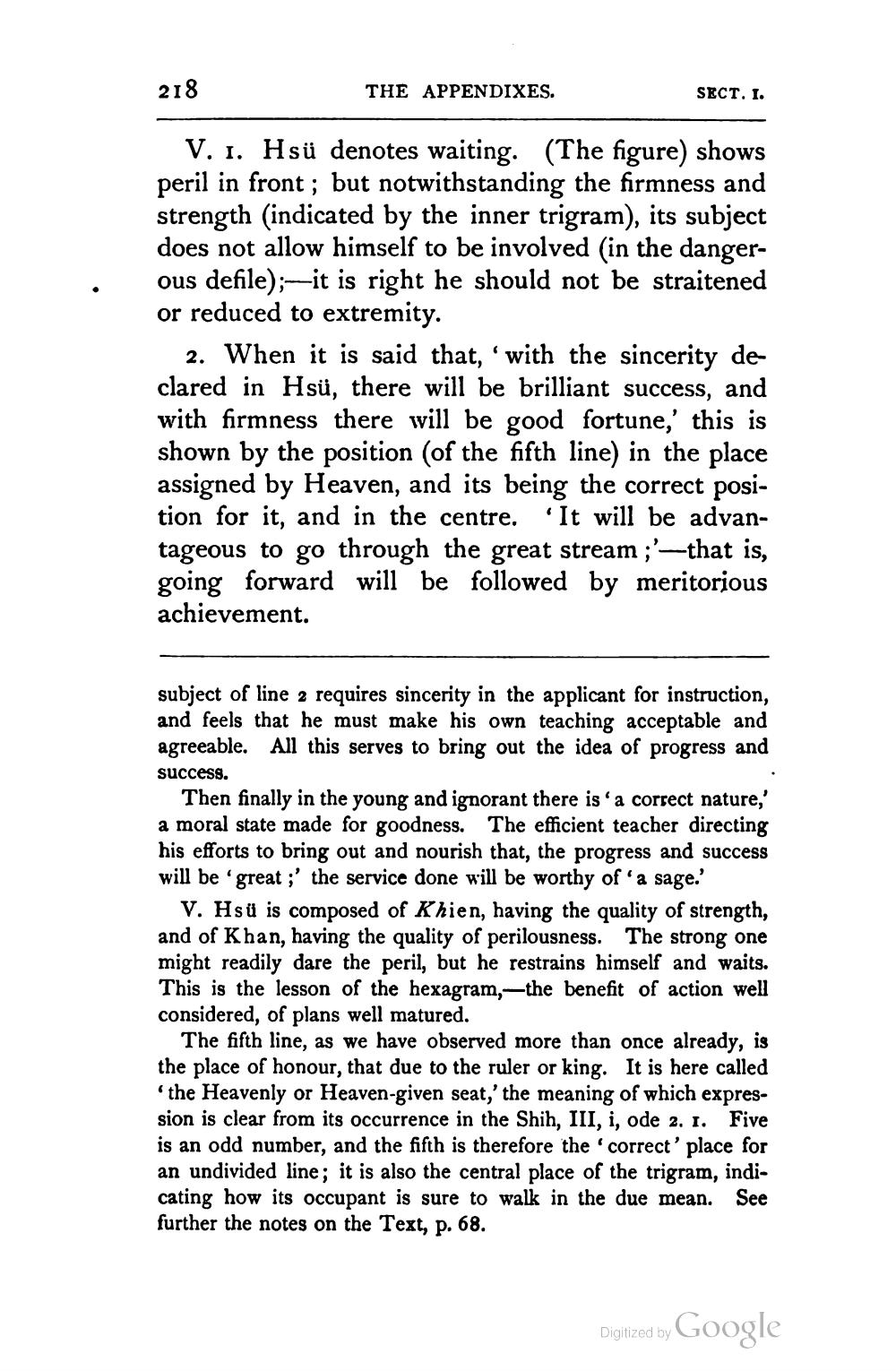________________
218
THE APPENDIXES.
SECT. I.
V. 1. Hsü denotes waiting. (The figure) shows peril in front; but notwithstanding the firmness and strength (indicated by the inner trigram), its subject does not allow himself to be involved in the dangerous defile);—it is right he should not be straitened or reduced to extremity.
2. When it is said that, 'with the sincerity declared in Hsü, there will be brilliant success, and with firmness there will be good fortune,' this is shown by the position (of the fifth line) in the place assigned by Heaven, and its being the correct position for it, and in the centre. "It will be advantageous to go through the great stream ;'--that is, going forward will be followed by meritorious achievement.
subject of line 2 requires sincerity in the applicant for instruction, and feels that he must make his own teaching acceptable and agreeable. All this serves to bring out the idea of progress and success.
Then finally in the young and ignorant there is a correct nature,' a moral state made for goodness. The efficient teacher directing his efforts to bring out and nourish that, the progress and success will be great ;' the service done will be worthy of a sage.'
V. Hsü is composed of Khien, having the quality of strength, and of Khan, having the quality of perilousness. The strong one might readily dare the peril, but he restrains himself and waits. This is the lesson of the hexagram, the benefit of action well considered, of plans well matured.
The fifth line, as we have observed more than once already, is the place of honour, that due to the ruler or king. It is here called
the Heavenly or Heaven-given seat,' the meaning of which expression is clear from its occurrence in the Shih, III, i, ode 2. 1. Five is an odd number, and the fifth is therefore the 'correct' place for an undivided line; it is also the central place of the trigram, indicating how its occupant is sure to walk in the due mean. See further the notes on the Text, p. 68.
Digitized by Google




